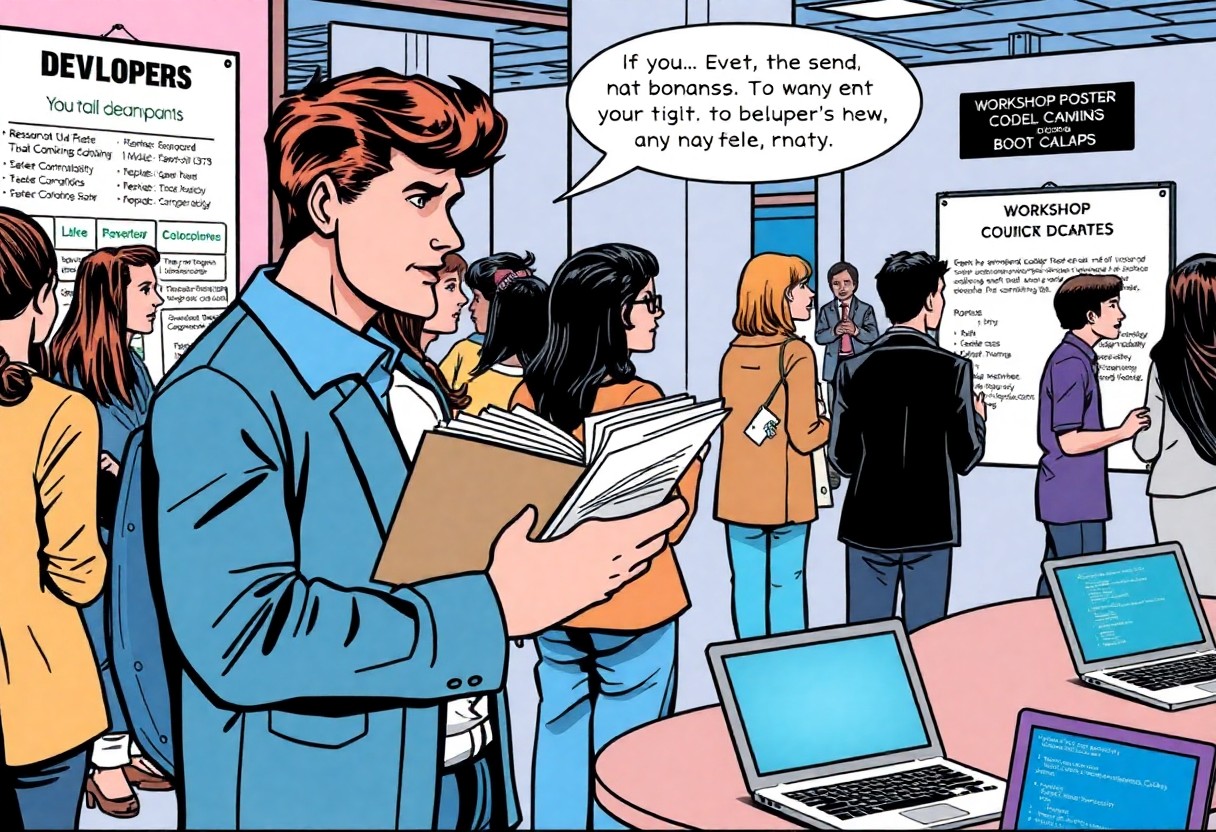Many aspiring developers believe that a traditional degree is the only path to success. I am here to show you that it’s entirely possible to learn coding on your own and secure a job in this dynamic field without one. By utilizing free resources, engaging in hands-on projects, and building a solid portfolio, you can demonstrate your skills and attract potential employers. In this guide, I will share effective strategies to help you begin on your coding journey and achieve your career goals.
Key Takeaways:
- Focus on building practical skills through online tutorials, coding bootcamps, and projects.
- Create a strong portfolio showcasing your work and relevant experience to demonstrate your capabilities.
- Network within the tech community and engage with mentors to gain insights and job opportunities.
Understanding the Basics of Coding
What is Coding?
Coding is the process of writing instructions that a computer can understand to perform specific tasks. By using various programming languages, you can create software, applications, and websites, enabling you to solve problems or automate tasks. Coding is the language that bridges human ideas and machine capabilities, transforming concepts into tangible digital products.
Essential Programming Languages to Learn
Several programming languages serve as the foundation for a successful coding career. Start with Python, known for its readability and versatility, ideal for beginners. JavaScript is vital for web development, while Java remains a staple in enterprise applications. Exploring Ruby and C++ can also enhance your programming skills.
Focusing on Python first can simplify the learning curve due to its clear syntax and extensive libraries for various applications, from web development to data analysis. JavaScript is indispensable for front-end development, allowing you to create interactive websites. Java’s robustness makes it a top choice for large-scale applications, while learning Ruby can be advantageous for developing web applications swiftly. C++ offers in-depth control over system resources, making it relevant in high-performance contexts. Balancing these languages provides a comprehensive skill set, making you well-rounded in the job market.
How to Start Learning Coding
Effective learning starts with defining your goals; whether you aim to build web applications, develop games, or work in data science, having a clear direction will shape your learning path. I suggest starting with a specific programming language that aligns with your interests. This will help you stay motivated and focused as you navigate through various concepts and challenges.
Online Resources and Courses
Numerous platforms offer quality online coding courses for beginners. Websites like Codecademy, freeCodeCamp, and Coursera provide structured learning paths to help you grasp fundamental concepts quickly. These resources often include interactive exercises, real-world projects, and community support, making your learning journey engaging and effective.
Books and Tutorials
Books and tutorials can provide in-depth knowledge of programming principles. Titles like “Eloquent JavaScript” for JavaScript or “Automate the Boring Stuff with Python” for Python offer practical examples and exercises. Online tutorials, many of which are free on platforms like YouTube, allow you to visualize concepts while coding, making this approach versatile and accessible.
Diving into books and tutorials equips you with foundational skills and problem-solving strategies. Look for books that include exercises, as this hands-on practice solidifies your understanding. Pairing books with online tutorials provides a comprehensive learning experience; the interactive nature of tutorials complements the theoretical knowledge gained from reading. Engaging with communities on forums like Stack Overflow or GitHub can also enhance your learning, offering practical insights and feedback on your code.
Tips for Building Skills
To successfully build your coding skills, focus on a structured approach that emphasizes crucial concepts and real-world applications. I recommend the following strategies:
- Set specific goals for what you want to achieve.
- Utilize online resources like tutorials and coding communities.
- Participate in networking opportunities to meet other developers.
- Seek feedback on your work to improve continuously.
The path to becoming a proficient coder requires dedication and strategic planning.
Practice Coding Regularly
Consistent practice is key to mastering coding languages and frameworks. By dedicating time each day to write code, I found that my understanding deepened significantly. Aim for at least 30 minutes of coding daily, focusing on solving problems or building projects. This habit not only reinforces concepts but also builds muscle memory in your coding capabilities.
Engage in Coding Challenges
Participating in coding challenges can significantly enhance your skills and confidence. These challenges often involve solving algorithmic problems or building applications under time constraints. Platforms like LeetCode and HackerRank offer a variety of challenges tailored to different skill levels, providing an opportunity to tackle real coding problems. By setting personal records and competing with others, I noticed my problem-solving abilities and creativity improved dramatically.
Engaging in coding challenges not only helps refine your technical skills but also familiarizes you with the kind of tasks you’ll encounter in job interviews. Many companies value candidates who can demonstrate their coding abilities under pressure. These challenges offer valuable experience in critical thinking and debugging, which are crucial in a developer role. Additionally, showcasing your achievements from these platforms on your resume can make you more appealing to employers.
Factors to Consider When Learning Coding
Several factors shape your learning journey in coding, influencing both your skill acquisition and job prospects. These include your current knowledge level, the coding languages you choose to focus on, effective learning methods, and the amount of time you can commit. Understanding your motivation and the context in which you want to work will determine your path. Recognizing these factors is vital for a tailored learning strategy that leads to success.
Setting Realistic Goals
Establishing realistic goals helps maintain motivation and progression in your coding journey. Break down your learning into manageable chunks, focusing on specific skills or projects that can be accomplished within a set timeframe. Aim for achievable milestones, such as completing a beginner course, creating your first app, or contributing to an open-source project. This structured approach allows for measurable progress without overwhelming you.
Finding a Mentor or Community
Connecting with a mentor or joining a coding community greatly influences your learning experience. Mentors provide personalized insights and feedback, while communities offer support, resources, and networking opportunities. Engaging with others can enhance your understanding of complex topics and keep you motivated. Doing this can also expose you to different problem-solving techniques that could prove invaluable in your career.
Finding a mentor can be as simple as reaching out to someone in your existing network or exploring platforms such as LinkedIn, where many experienced developers are willing to guide newcomers. Coding communities, whether online forums or local meetups, foster an environment where members share challenges and solutions. For instance, participating in hackathons or open-source initiatives exposes you to collaborative work, further strengthening your coding skills while building lasting professional relationships. Embracing these connections fosters a supportive atmosphere that encourages both learning and growth.
Building a Portfolio
A strong portfolio is important for demonstrating your coding skills to potential employers. It should highlight your best work, showcasing a range of projects that reflect your coding proficiency and problem-solving abilities. Tailoring your portfolio to the specific roles you are targeting can give you an edge, emphasizing relevant technologies and approaches used in those projects.
Projects to Showcase Your Skills
Focus on creating projects that not only challenge you but also demonstrate your ability to solve real-world problems. Building a personal website, developing a mobile app, or contributing to open-source projects can effectively showcase your skills. Each project should have clear documentation detailing your thought process, the technologies used, and the outcomes achieved.
Utilizing GitHub and Other Platforms
GitHub serves as a powerful tool for developers to display their work. By regularly committing your code and collaborating with others, you can exhibit your coding habits, problem-solving skills, and commitment to continuous improvement. Engaging with platforms like GitLab or Bitbucket can further enhance your visibility in the developer community.
On GitHub, you can outline your projects with README files that not only describe the functionality but also explain the design decisions behind them. Regular updates and active participation in issues and pull requests show your engagement level. Joining coding communities, contributing to open-source projects, or even participating in hackathons can bolster your portfolio with tangible examples of your coding capabilities and collaborative spirit.

Networking and Finding Job Opportunities
Networking plays a pivotal role in uncovering job opportunities that may not be advertised publicly. Attend local tech meetups, industry conferences, and workshops to connect with professionals in your field. Utilize platforms like LinkedIn to engage with industry leaders and join relevant groups. Building meaningful relationships can lead to referrals and insights about job openings that align with your skills.
Networking Strategies
Effective networking involves more than just exchanging business cards. Focus on building genuine connections by engaging in conversations, offering your assistance, or sharing resources. Follow up with people you meet to keep the relationship active. Participating in hackathons or contributing to open-source projects can also expand your network while showcasing your skills in real-world situations.
Applying for Developer Positions
Applying for developer positions requires a targeted approach. Tailor your resume and cover letter to match the job description, emphasizing relevant skills and projects. Leverage your portfolio to demonstrate your coding capabilities and problem-solving skills. I often find success by reaching out to contacts within companies and expressing my interest directly, rather than relying solely on online applications.
In my experience, applying strategically can significantly enhance your chances of landing interviews. Prioritize positions that align with your skill set and aspirations. Research the companies thoroughly and prepare thoughtful questions for interviews. Follow up after applications with personalized messages to reinforce your interest. Many developers have secured positions not just by applying but by expressing genuine enthusiasm and relevant insights about the company’s projects during initial conversations.
Final Words
Summing up, I believe that learning coding without a computer science degree is entirely feasible with dedication and the right resources. By leveraging online courses, coding bootcamps, and hands-on projects, you can build the skills necessary for a developer job. Networking within tech communities and contributing to open-source projects can also showcase your abilities to potential employers. My path may differ from yours, but your commitment to learning and practical application will open doors in the tech industry.
FAQ
Q: Is it possible to learn coding without a formal degree?
A: Yes, many successful developers are self-taught or have learned coding through bootcamps, online courses, and free resources. Passion and dedication play significant roles in mastering programming skills.
Q: What resources are best for learning coding on your own?
A: Online platforms like Codecademy, freeCodeCamp, Coursera, and edX offer various courses tailored to beginners. Additionally, YouTube, coding blogs, and community forums provide accessible learning materials and support.
Q: How can I land a developer job without a degree?
A: Focus on building a portfolio showcasing your projects and coding skills. Networking through platforms like LinkedIn, attending meetups, and participating in hackathons can also help you connect with potential employers, leading to job opportunities.
